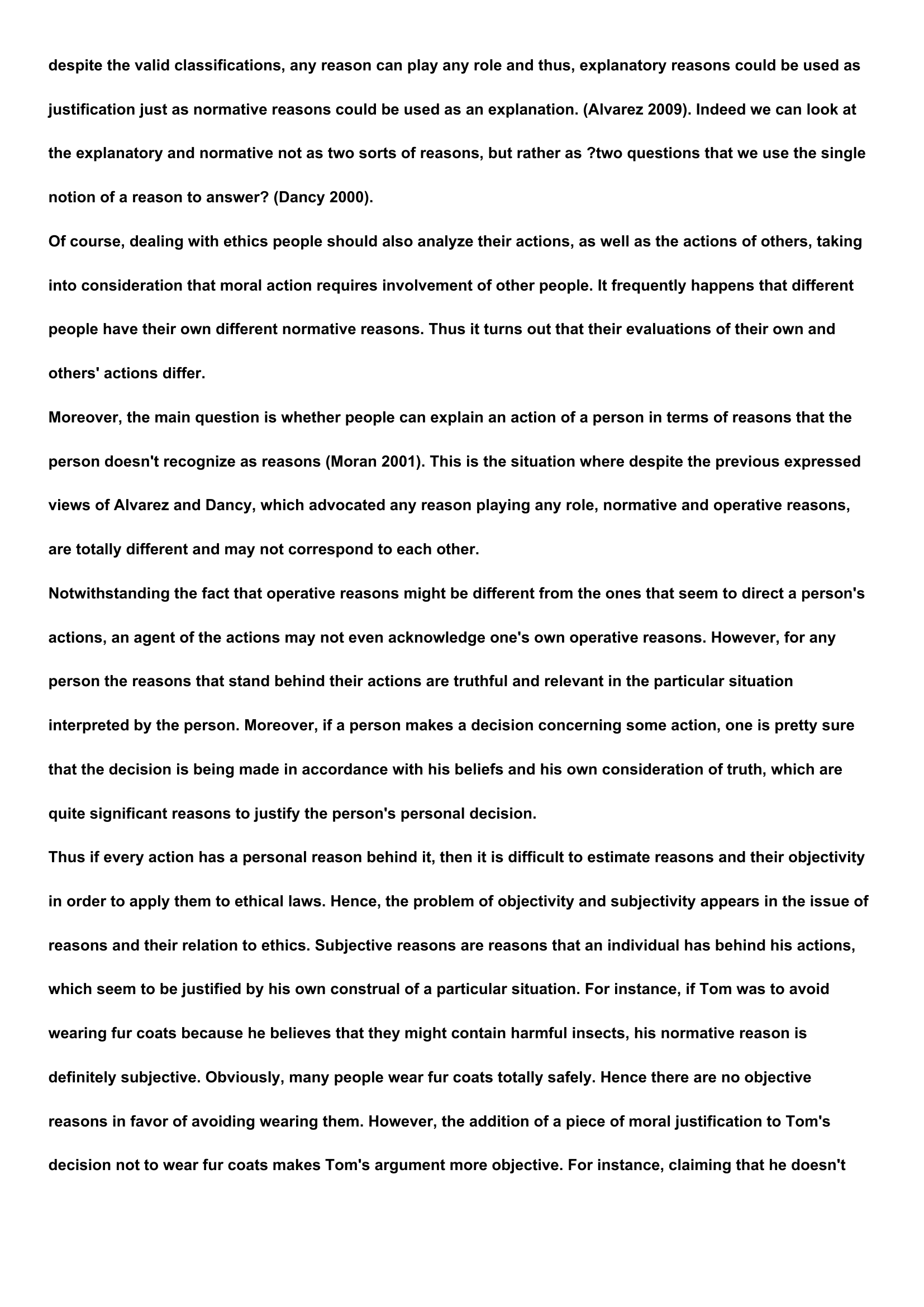What are reasons and why do they matter in ethics?
Publié le 23/10/2015
Extrait du document
«
despite the valid classifications, any reason can play any role and thus, explanatory reasons could be used as
justification just as normative reasons could be used as an explanation.
(Alvarez 2009).
Indeed we can look at
the explanatory and normative not as two sorts of reasons, but rather as ?two questions that we use the single
notion of a reason to answer? (Dancy 2000).
Of course, dealing with ethics people should also analyze their actions, as well as the actions of others, taking
into consideration that moral action requires involvement of other people.
It frequently happens that different
people have their own different normative reasons.
Thus it turns out that their evaluations of their own and
others' actions differ.
Moreover, the main question is whether people can explain an action of a person in terms of reasons that the
person doesn't recognize as reasons (Moran 2001).
This is the situation where despite the previous expressed
views of Alvarez and Dancy, which advocated any reason playing any role, normative and operative reasons,
are totally different and may not correspond to each other.
Notwithstanding the fact that operative reasons might be different from the ones that seem to direct a person's
actions, an agent of the actions may not even acknowledge one's own operative reasons.
However, for any
person the reasons that stand behind their actions are truthful and relevant in the particular situation
interpreted by the person.
Moreover, if a person makes a decision concerning some action, one is pretty sure
that the decision is being made in accordance with his beliefs and his own consideration of truth, which are
quite significant reasons to justify the person's personal decision.
Thus if every action has a personal reason behind it, then it is difficult to estimate reasons and their objectivity
in order to apply them to ethical laws.
Hence, the problem of objectivity and subjectivity appears in the issue of
reasons and their relation to ethics.
Subjective reasons are reasons that an individual has behind his actions,
which seem to be justified by his own construal of a particular situation.
For instance, if Tom was to avoid
wearing fur coats because he believes that they might contain harmful insects, his normative reason is
definitely subjective.
Obviously, many people wear fur coats totally safely.
Hence there are no objective
reasons in favor of avoiding wearing them.
However, the addition of a piece of moral justification to Tom's
decision not to wear fur coats makes Tom's argument more objective.
For instance, claiming that he doesn't.
»
↓↓↓ APERÇU DU DOCUMENT ↓↓↓
Liens utiles
- “What Good Is This Thing Called Intelligence and Why Bother to Measure It?” Hilliard Response
- Arachnids You may think that spiders and ticks are insects, but they are not.
- Cockroach Cockroaches are one of the oldest insects on Earth and look about the same as they did millions of years ago.
- Quantum Theory I INTRODUCTION Quantum Theory, in physics, description of the particles that make up matter and how they interact with each other and with energy.
- WHY I'M NOT WHERE YOU ARE 5/21/63 Your mother and I never talk about the past, that's a rule.

































